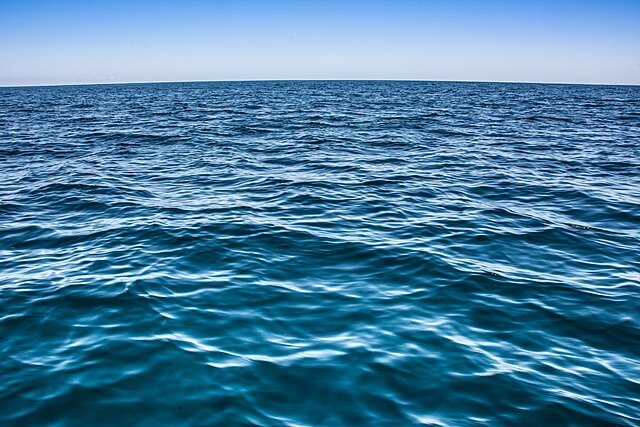
According to Earth system scientists at the University of California, Irvine, climate-driven seawater heating is slowing down the deep circulation patterns of the Atlantic and Southern oceans. The ocean’s capacity to remove carbon dioxide from the atmosphere will be severely compromised if this trend continues, accelerating the effects of global warming.
These researchers found in a recent study that was published in the journal Nature Climate Change that the Atlantic Meridional Overturning Circulation and the Southern Meridional Overturning Circulation could slow by as much as 42% by 2100. The SMOC might even come to a complete halt by 2300, according to the worst-case scenario of the simulations.
“Analysis of the projections from 36 Earth system models over a range of climate scenarios shows that unchecked global warming could lead to a shutdown of the ocean deep circulation,” said co-author J. Keith Moore, UCI professor of Earth system science. “This would be a climate disaster similar in magnitude to the complete melting of the ice sheets on land.”
Warm water moves northward on the surface of the Atlantic as it cools and evaporates, making it saltier and denser. This heavier water goes into the deep ocean and moves south, where it eventually comes back up, carrying the nutrients that marine ecosystems need for food from the bottom.
Ocean circulation around the world also makes a powerful factory for processing carbon dioxide from the atmosphere. CO2 is drawn into the ocean by seawater and air’s fundamental physical and chemical interaction, which Moore and his colleagues refer to as a “solubility pump.” While some carbon is returned to space by ocean circulation, the majority of it is retained in the ocean’s depths.
Additionally, phytoplankton use CO2 during photosynthesis and the formation of carbonate shells, resulting in a “biological pump.” Plankton and larger animals that die sink, slowly breaking down and releasing nutrients and carbon at depth. With circulation and upwelling, some come back up, but others remain banked beneath the waves.
“A disruption in circulation would reduce ocean uptake of carbon dioxide from the atmosphere, intensifying and extending the hot climate conditions,” Moore said. “Over time the nutrients that support marine ecosystems would increasingly become trapped in the deep ocean, leading to declining global-ocean biological productivity.”
According to Moore, the solubility pump and the biological pump assist humans in removing some of the CO2 that is released into the air as a result of activities like burning fossil fuels, changing how land is used, and other activities.
“Our analysis also shows that reducing greenhouse gas emissions now can prevent this complete shutdown of the deep circulation in the future,” he said.
——————————————————————————
At Natural World Fund, we are passionate about stopping the decline in our wildlife.
The declines in our wildlife is shocking and frightening. Without much more support, many of the animals we know and love will continue in their declines towards extinction.
When you help to restore a patch of degraded land through rewilding to forests, meadows, or wetlands, you have a massive impact on the biodiversity at a local level. You give animals a home and food that they otherwise would not have had, and it has a positive snowball effect for the food chain.
We are convinced that this is much better for the UK than growing lots of fast-growing coniferous trees, solely to remove carbon, that don’t actually help our animals to thrive.
This is why we stand for restoring nature in the UK through responsible rewilding. For us, it is the right thing to do. Let’s do what’s right for nature!
Support our work today at https://naturalworldfund.com/ and join in the solution!

